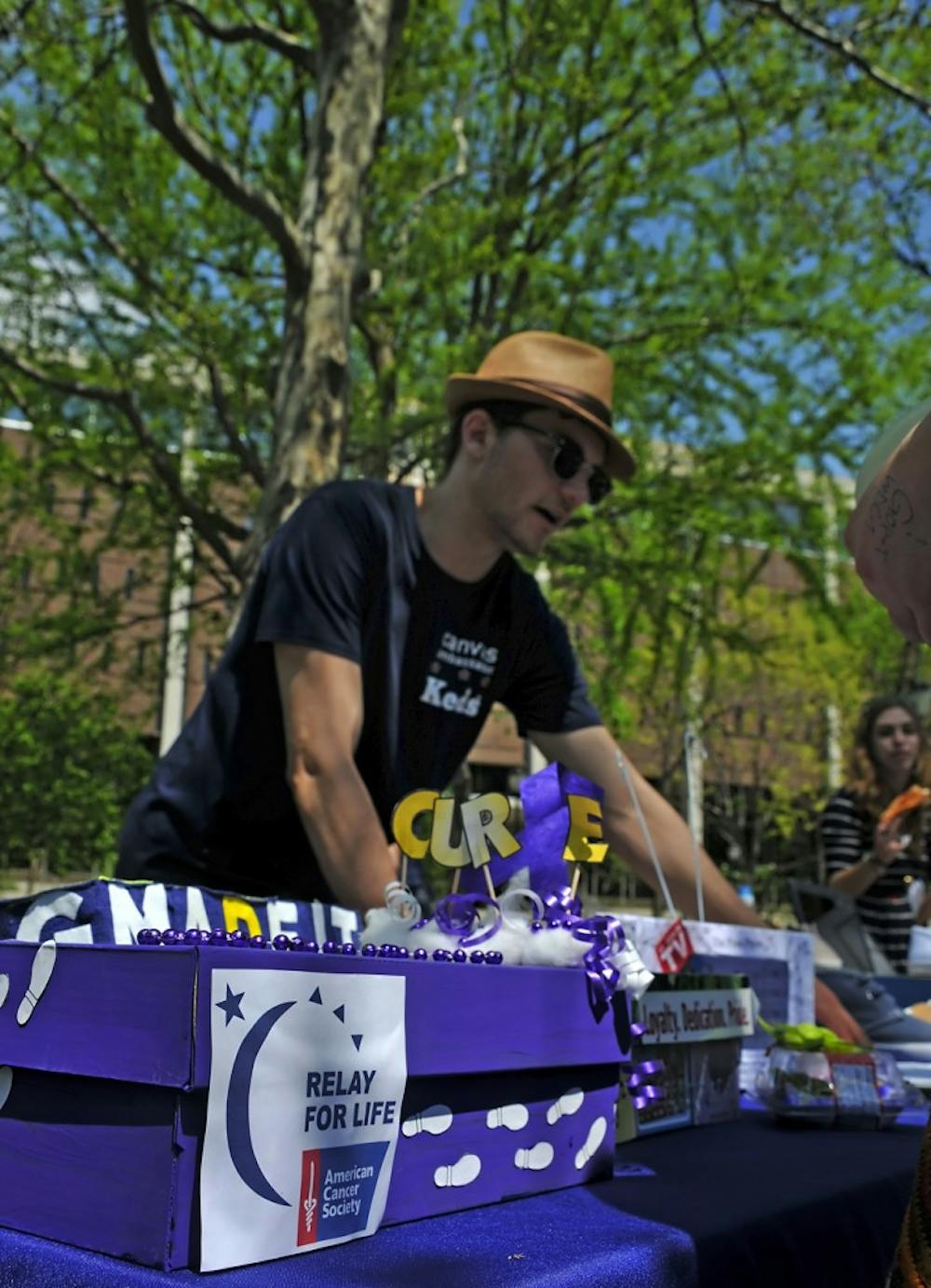
Students passing through College Green yesterday may have noticed something unusual — a large white Keds van parked in the grass with the slogan, “How do you do?”
The van was advertising Keds’ two-day promotional event on campus. Tuesday's events will include performances from Off the Beat, Strictly Funk, Fat Panther, Red Giants as well as two fashion shows. The event is part of Keds’ How Do You Do? Tour, a marketing campaign that includes 10 stops at college campuses with the goal of reaching young adults, said College sophomore Jenna Heidenberg, a student representative for Keds at Penn.
Heidenberg and College senior Harrison Tenzer are the two Penn “brand ambassadors” for Keds. They are employed by a marketing company, Mr. Youth’s RepNation, to promote this tour “using word of mouth and social and online media,” Heidenberg said.
Many other companies use student ambassadors to market on college campuses, managing director of the Jay Baker Retailing Initiative Erin Armendinger said.
“This generation requires a more local type of marketing,” Armendinger said. “We are bombarded with advertisements on Facebook and through other media. If we can get someone who speaks our language, we relate. We feel like it’s more authentic.”
The goal of the Keds campaign is also to relate to college students, Heidenberg said, adding that Keds — a 96-year-old company — “is trying to find out exactly what is relevant to our generation.”
Heidenberg and Tenzer are two of the many Penn student representatives for national and international businesses.
Wharton sophomore Devon Kestle promotes Lootsa.com, a startup founded by two Penn alumni that “sets up different deals with different vendors around the Penn area.”
She believes using student ambassadors is “definitely a good idea,” explaining that “it’s important for businesses to have a student perspective.”
However, Armendinger questions the efficacy of these marketing campaigns.
Businesses “pick people who they believe are connectors socially,” she said. But “it’s all very relative. The people they choose don’t always represent the entire campus. These businesses may not be getting the whole bang for their buck.”
While student’s ambassadors “definitely have an impact,” Armendinger questions “how big the impact is.” However, she believes that there are “definitely more pluses than minuses” to these marketing strategies.
Although many student representatives are unpaid, being an ambassador for a business teaches you to “network and put yourself out there,” Heidenberg said.
“Every person can benefit from an experience like this,” she added. “Organizing people, being creative with others and learning to listen to other people are all invaluable skills.”
Many student representatives enjoy the practical aspects of working with a business, said College junior Nitya Kanuri, who is the student ambassador for Wanderfly, a website started by Penn alumni to coordinate users’ travel plans.
Working on marketing campaigns for real companies “looks great on a resume,” Kanuri added. “It’s a lot better to say you actually did something for a business than saying you just learned something in a marketing class.”
The Daily Pennsylvanian is an independent, student-run newspaper. Please consider making a donation to support the coverage that shapes the University. Your generosity ensures a future of strong journalism at Penn.
DonatePlease note All comments are eligible for publication in The Daily Pennsylvanian.







